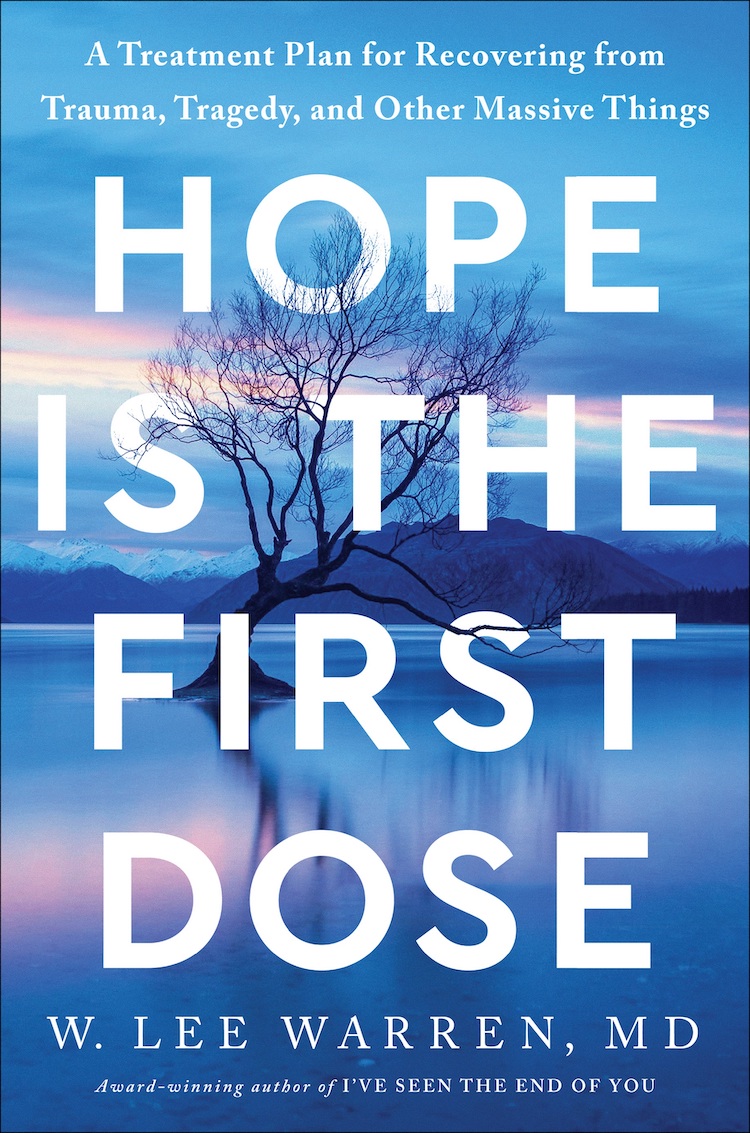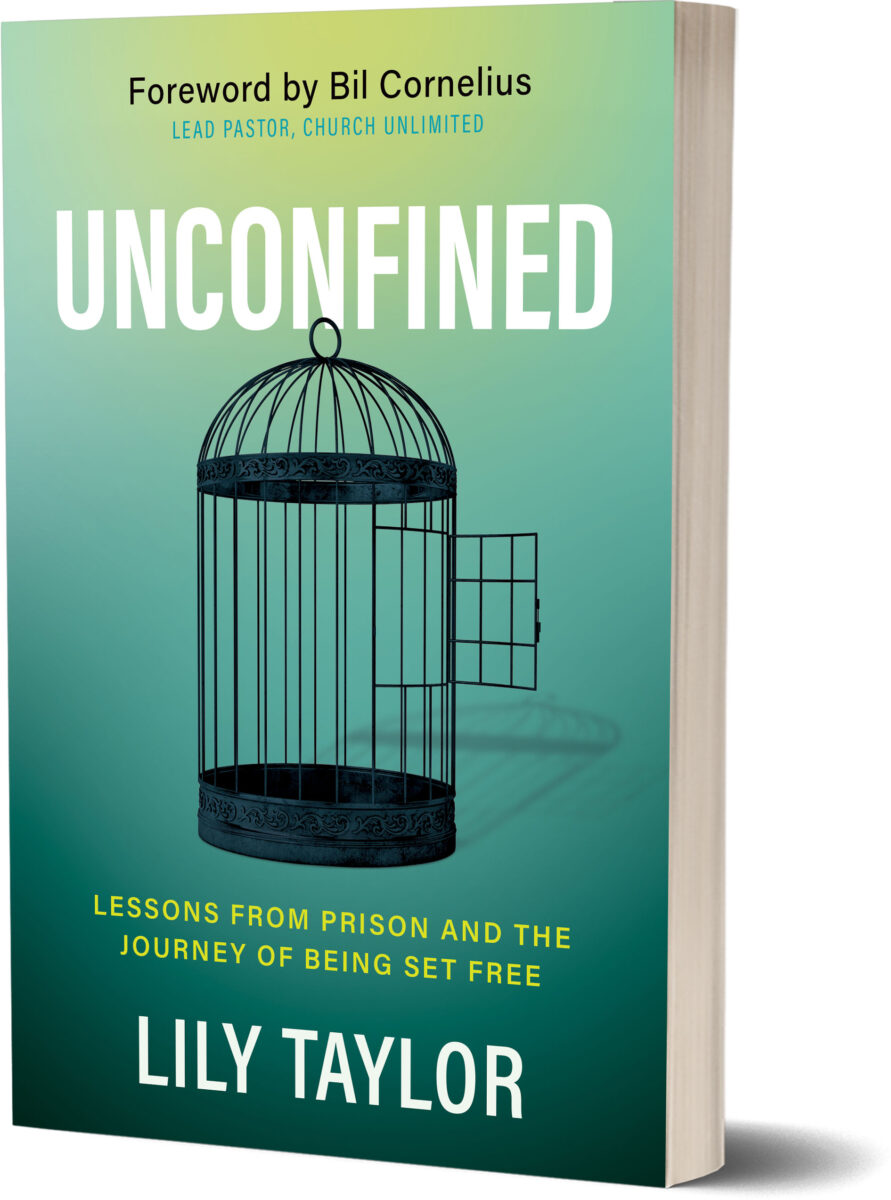Finding Our Way Back From Hopelessness: Dr. W. Lee Warren & Lily Taylor
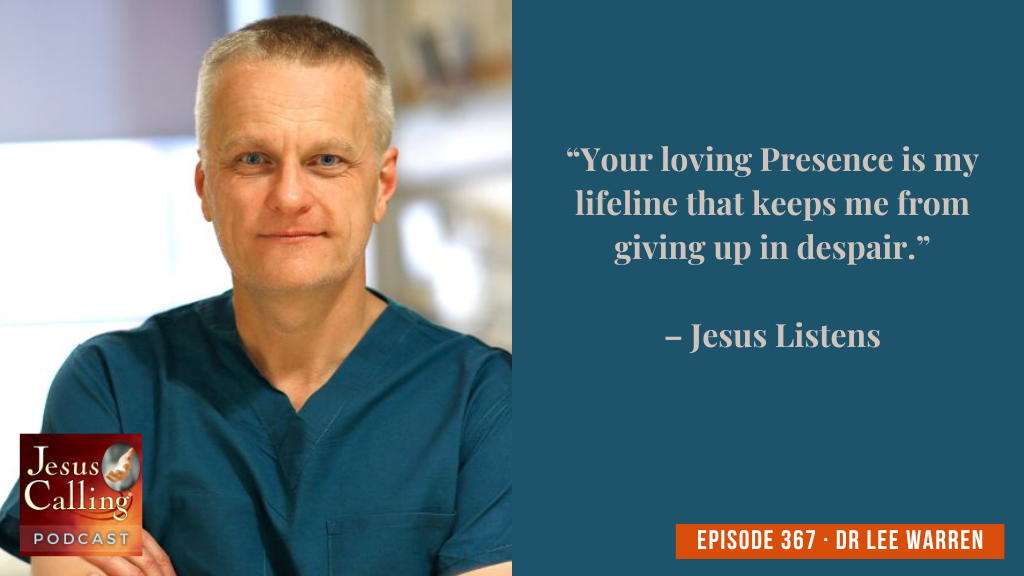
Dr. W. Lee Warren: What Jesus said in John 16:33 is that, “This world’s going to give you trouble.” But He also said in John 10:10 that, “You can have an abundant life, I came here so you can have an abundant life.” So the thing that faith does for you is give you the ability to see that both of those things can be true. You can have a hard life and you can have an abundant life. And that’s why faith is so important in recovery.
Finding Our Way Back From Hopelessness: Dr. W. Lee Warren & Lily Taylor – Episode #367
Narrator: Welcome to the Jesus Calling Podcast. There is an affliction that every one of us might face in this life that can be as devastating as any deadly disease: hopelessness. People without hope give up trying to change things. They may feel dead inside even though they are healthy, and sometimes might even wonder why they are alive at all, because they have forgotten that light is still present. Life is hard, but we don’t have to be victims of hopelessness. Though seasons of grief and sadness will come, it’s possible—as Paul says in the Bible—to be “sorrowful, yet always rejoicing” (2 Corinthians 6:10).
This week, we’ll hear from neurosurgeon Dr. W. Lee Warren, who shares about what hopelessness can do to our minds and our spirits, how he wrestled with the idea that we can have a hard life and an abundant life, and what he did to cope after tragically losing his son. Author Lily Taylor shares about the devastation she experienced when her son was sentenced to ten years in prison, and how by keeping God at the center, she was able to hang on to hope for herself and her son.
We’ll start with Dr. Warren’s story.
Dr. Warren: I’m Dr. Lee Warren. I’m a neurosurgeon in Nebraska, and I’m also a writer and a podcaster. And I grew up in a Christian home, and for some reason I always felt the call to be a physician on my life.
Facing Trauma on the Front Lines
And so I followed that calling and ultimately ended up becoming a physician and went to medical school on a scholarship from the Air Force. I ended up being a neurosurgeon in the Air Force for a long time and went to Iraq and spent some time there as a combat surgeon.
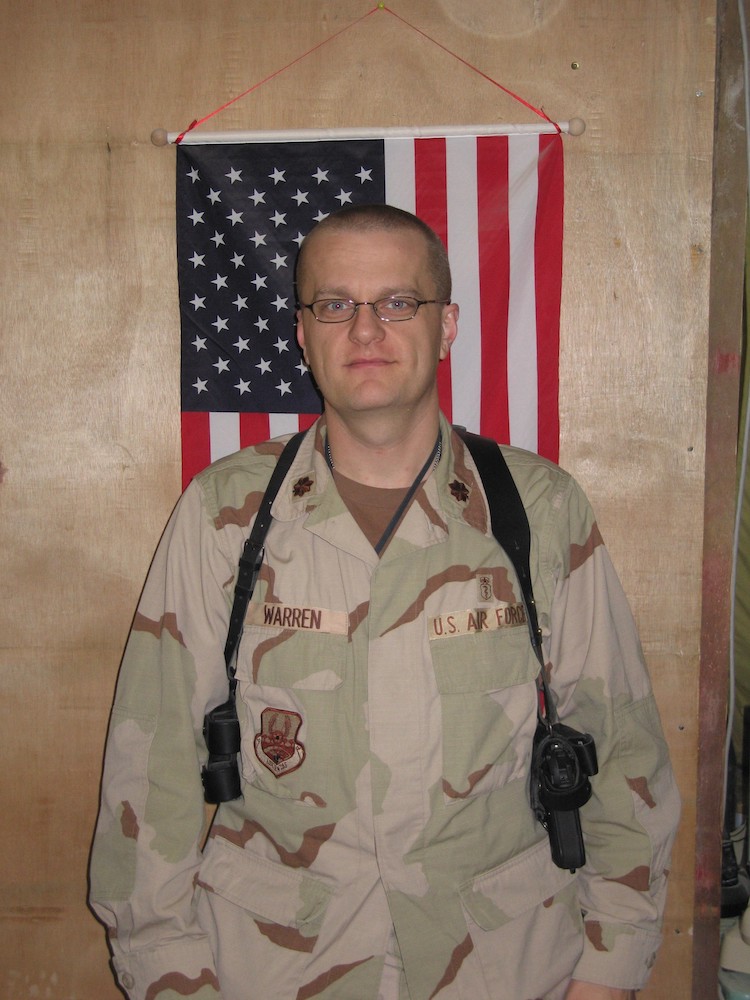
I spent four and a half months in Iraq in 2005 during the most dangerous part of the war at a place called Balad Air Base in the 332nd Air Force Theater Hospital. It was a tent hospital with every type of surgical specialty available. We had heart surgeons and vascular surgeons and two neurosurgeons and plastic and EMT and orthopedic and all the general surgeons there, because the experience with combat patients had taught the military that having surgeons close to the battlefield is the best way to save lives and save the function of people who are injured.
So we were within a sixty minute window of injury to surgery with those folks during that time. And I did 200 brain surgeries in that environment. We had over 100 mortar and rocket attacks on our base while I was there. And so it was quite a traumatic experience taking care of American and coalition soldiers along with terrorists and Iraqi civilians and even babies. So it was quite a blend of different people that we were taking care of. And so I think one of the hard parts was operating on someone else while you were in physical danger yourself, that was a whole new learning curve for all of us.
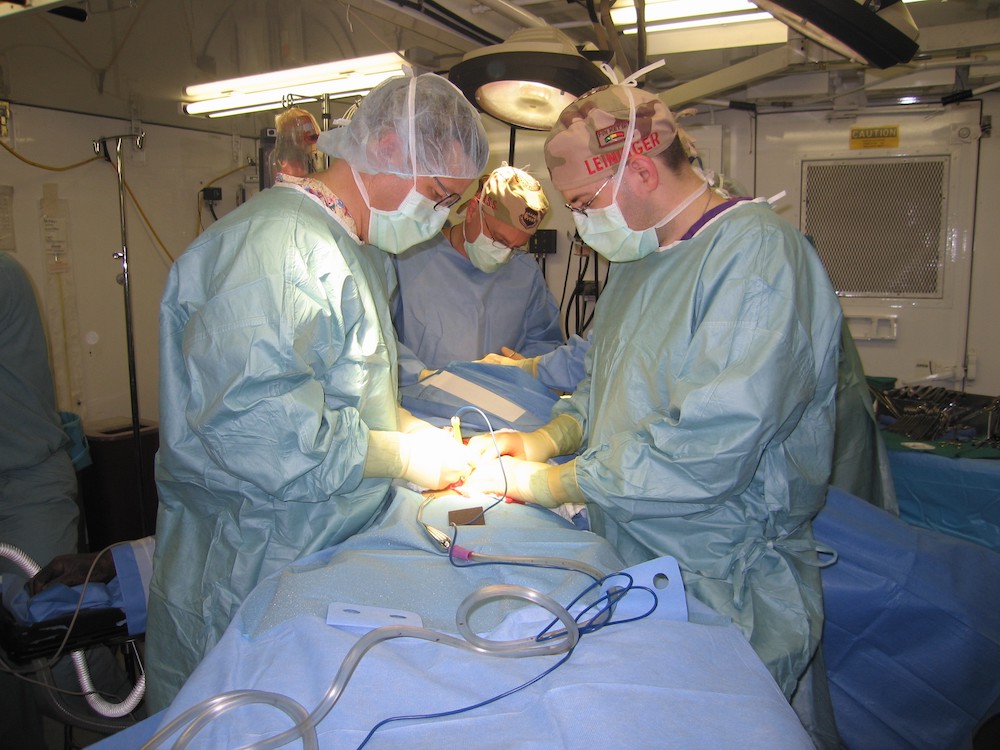
I, at least, perceived this burden of leadership where I felt, I’ve got to contain my own fear and emotions in order to make sure the people around me have a good role model to follow, even when I was scared myself. And I think that probably led to some of the stuffing it back inside kinds of things that a lot of us carried home.
Facing Hopelessness as a Surgeon and as a Father
I came home from the war and went through some aspects of PTSD and healing and recovery from all of that. This problem that I kept running into as a surgeon who was also a Christian, I would see somebody MRI or CAT scan and they would have a tumor that I knew to be malignant. I would see the scan and I would know that was going to be a glioblastoma, and I would know that that patient didn’t have very long to live. And I would just see the whole thing in my mind of what was going to happen to them.
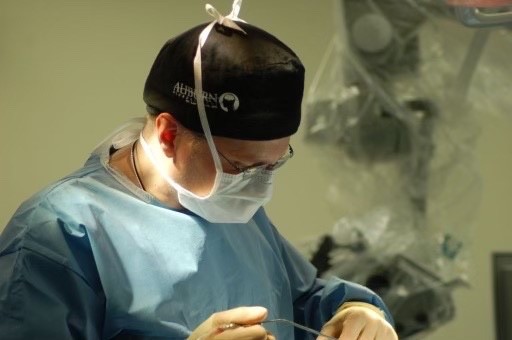
And so I had this conundrum of how do I pray for somebody and how do I encourage them to hold on to hope, because hopelessness turns out to be like a really bad diagnosis independent of your medical condition. So I was trying to figure out how to be a good doctor to people when I couldn’t save them, and how to be a good brother in the Lord to people when I couldn’t save their bodies. And in the process of that, I thought I had figured a bunch of stuff out when I became one of those suffering people.
“I was trying to figure out how to be a good doctor to people when I couldn’t save them, and how to be a good brother in the Lord to people when I couldn’t save their bodies.” – Dr. W. Lee Warren
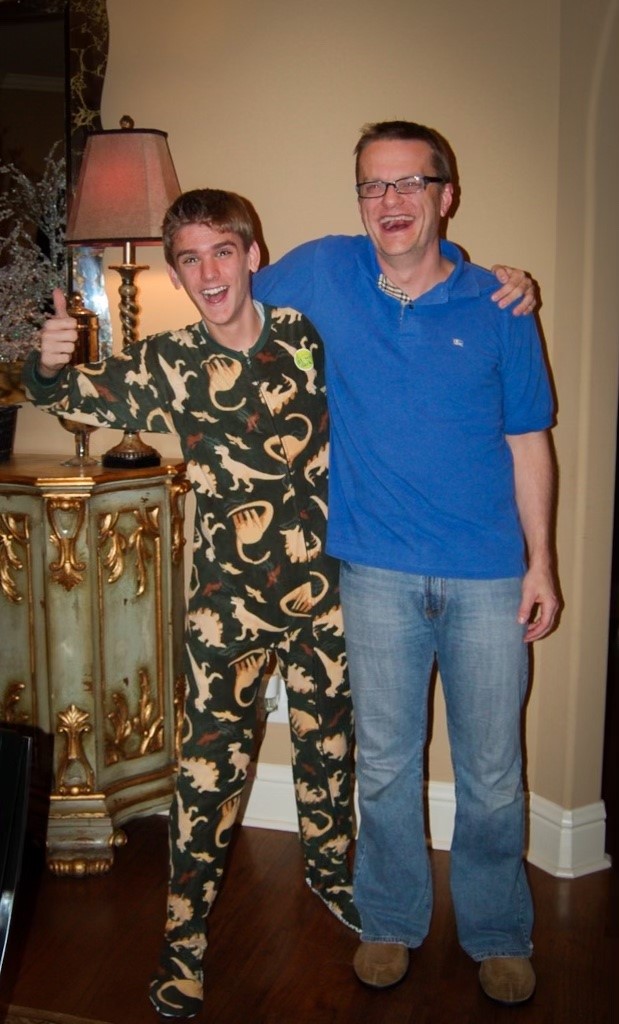
We lost a son. Mitch was a brilliant young man. He was nineteen and he had always been hilarious. And he just had a big personality and everybody loved him. He was also incredibly sensitive and really uncomfortable in his own skin a lot. And that caused him a lot of issues with not knowing how to handle his feelings, and so it became a source of anxiety for him.
And so what happened was he became sort of oversensitive and that led him to making some poor choices as he was growing up, you know, and choosing to try to find ways to feel better about things. And for a while that led him to being kind of estranged from us, but what happened was, I think he remembered his upbringing and he remembered who he really was, really. And he was starting to find his way back.
August the 19th of 2013, he called me and he said, “Dad, I want to come home. I want to get back in school. You know, I love you and, you know, I want to find my way back and everything’s going to be okay. I love you.” And so the last thing I heard my son say in this life was, “I love you.”
“The last thing I heard my son say in this life was, ‘I love you.’” – Dr. W. Lee Warren
It’s one of those deaths that we can’t really understand, and that creates its own set of pain and difficulty.Mitchell and his best friend were both found stabbed to death in a house. He had eight stab wounds in his neck. Then his best friend had a single stab wound and there were three knives in the house that had blood on them. And the police just basically walked into this house and found two dead teenage boys and saw three knives. And apparently Mitchell’s body was close to one of the knives, so they said, “Well, that boy must have killed the other boy and then killed himself.” And that’s what they decided.
So they didn’t call for detectives or investigators or the FBI or anything. They just called for people to clean the crime scene and declared it a murder-suicide. And so for us, that was impossible to believe because Mitch had never been violent. This was his best friend. Their drug and alcohol screens were negative. And so we were given this problem, this massive thing, this devastating thing with no way to really know what happened and no way to ever find out what really happened. And so it was one of those events where you have to learn how to be okay with not knowing what caused you the biggest pain you’ll ever feel in your life.
“It was one of those events where you have to learn how to be okay with not knowing what caused you the biggest pain you’ll ever feel in your life.” – Dr. W. Lee Warren
Harmful vs. Helpful Words for Those Who Are Grieving
I had to say, “God, this doesn’t feel like refinement. It feels like you’re burning me up.” But if I want to move forward in my life, I’m going to have to find some way to redeem this time and make something out of it that Mitch could be proud of.
“I had to say, ‘God, this doesn’t feel like refinement. It feels like you’re burning me up.’ But if I want to move forward in my life, I’m going to have to find some way to redeem this time and make something out of it that [my son] Mitch could be proud of.” – Dr. W. Lee Warren
Every day we had to decide, Do we believe these promises? You know, a good example is all these platitudes that people throw at you after somebody or something bad happens when you’re a Christian. People come along and they say things like, you know, “God must have needed another angel,” which is devastating. You shouldn’t hear that, and it’s bad theology because God doesn’t turn people into angels when they die. And also you would get mad and you would say, “Well, if God needed another angel, why didn’t He make one instead of taking my son away?”
Another one is, they always quote Romans 8:28, which says, “All things work together for the good of those who love the Lord and are called according to His purpose.” So people say that to you the day after your son dies, “Don’t worry, this will all work out for good.” It just kills you. It’s just crushing to hear those kinds of words.
There was a Jesus Calling passage that somebody sent us on the day that we buried our son that was exactly what we needed in that moment. And this is what the passage says:
“Entrust your loved ones to me.”
Imagine reading that on the day you’re putting your son in the ground.
“Entrust your loved ones to Me; release them into My protective care. They are much safer with Me than in your clinging hands. If you let a loved one become an idol in your heart, you endanger that one—as well as yourself. Joseph and his father, Jacob, suffered terribly because Jacob loved Joseph more than any of his other sons and treated him with special favor. So Joseph’s brothers hated him and plotted against him. Ultimately, I used that situation for good, but both father and son had to endure years of suffering and separation from one another.
I detest idolatry, even in the form of parental love, so beware of making a beloved child your idol. When you release loved ones to Me, you are free to cling to My hand. As you entrust others into My care, I am free to shower blessings on them. My Presence will go with them wherever they go, and I will give them rest. This same Presence stays with you as you relax and place your trust in Me. Watch to see what I will do.”
I read that a hundred times, and I wept. And I thought, you know, This is exactly it. This is the thing that keeps people grieving for the rest of their lives. There’s some people that never are able to move through the talking about the problem stage and into the healing from the problem stage. And what the Lord said to me through the words of Jesus Calling was there’s a danger of idolatry in grief. There’s a danger of making this the only thing that you can hold up and see for the rest of your life, and I’m telling you that there’s a better way than that, and it’s to let Me take care of this, this is why I created him to be with Me. And I created you to tender and steward him for a while, but now it’s time to let Me have him so I can steward you some more.
What happens with the gift of time, as time passes, God opens your eyes in a new way, and the light comes back on a little bit and you start being able to see ways in which those promises are actually true. For example, I need the resurrection to be true because I need to believe that my son is with his Creator and I need to believe that I get to see him again someday. Like they all have to be true, or none of them are true. So if it’s true that we get to see him again, then we can start looking for other promises that are true and that’ll help us. It’ll be like little rungs on the ladder.
“What happens with the gift of time, as time passes, God opens your eyes in a new way, and the light comes back on a little bit and you start being able to see ways in which those promises are actually true.” – Dr. W. Lee Warren
God’s Promises for When We’re Broken
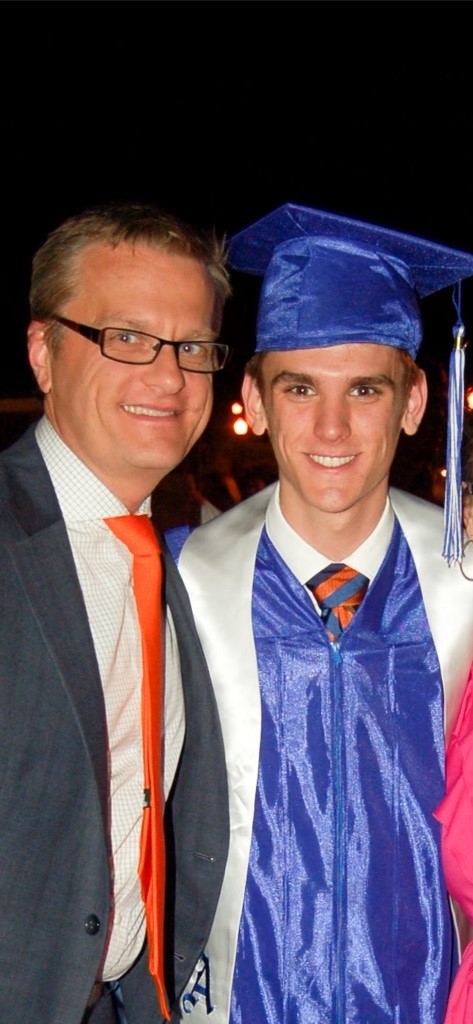
The day Mitch died was three days before our first granddaughter, Scarlet, was born in Texas. And so you can imagine we all had plane tickets booked and we were going to fly to Texas to be with our daughter Katy and her husband Nate, and waiting for the arrival of Scarlet. And then when Mitch died, we of course, instead of going to Texas, had to have a funeral in Alabama. And the joy of having their first child was darkened by losing their brother. And the excitement of us having our first grandchild was darkened by losing our son and all these jumbled up emotions.
But it’s another one of those exact examples of some of God’s promises coming true. And He says He’s going to give you something that will be close to you when you’re broken-hearted. This is the darkest thing we’ve ever been through, but there is still light in the world. It’s 900 miles away in Texas, but there’s still light. And if we know there’s still light, we can get through the darkest night because the sun’s going to come up again.
It was kind of like a new creation story for our family. We were going to miss somebody. We’re going to have a new person at the same time, and it was just a jumbled up mess of pain and beauty and hopelessness and hope all at the same time.
When we lost Mitch and I started feeling all these things, and when I say feeling, I mean I got shingles, my hair turned gray, I broke a molar from grinding my teeth, like, physical things happened in my body. And even C.S. Lewis in his work about grieving, he said, “Nobody ever told me that grief feels just like fear.” And so I recognized early on I had this dual stream of thought where one thought was how much I was hurting, and another thought was my scientist brain telling me what was happening. I understood it, That’s your amygdala and that’s your frontal lobe and that’s your signal drivers and all that stuff. So I knew what was happening, but it didn’t make it feel any better. But I also knew that feelings are not facts.
A Pathway Forward After Loss
So for me, I started recognizing that I had a lot of stuff in my head, a lot of thoughts, like, I must have been a bad father. I could have done something about this. What did I miss that could have helped Mitch not have this happen to him? How can I ever counsel my other children or grandchildren now, because I’ve lost one. What credibility do I have to help them? You know, all those kinds of thoughts were there.
And I had this simultaneous soundtrack of understanding the neuroscience of what I was feeling so that I could say, “Wait a minute, those thoughts aren’t really true.” Like I still have credibility as a dad. You know, I’ve got four kids who need my help. I can’t quit trying to advise them and help them because they need me now. They’re grieving, too.
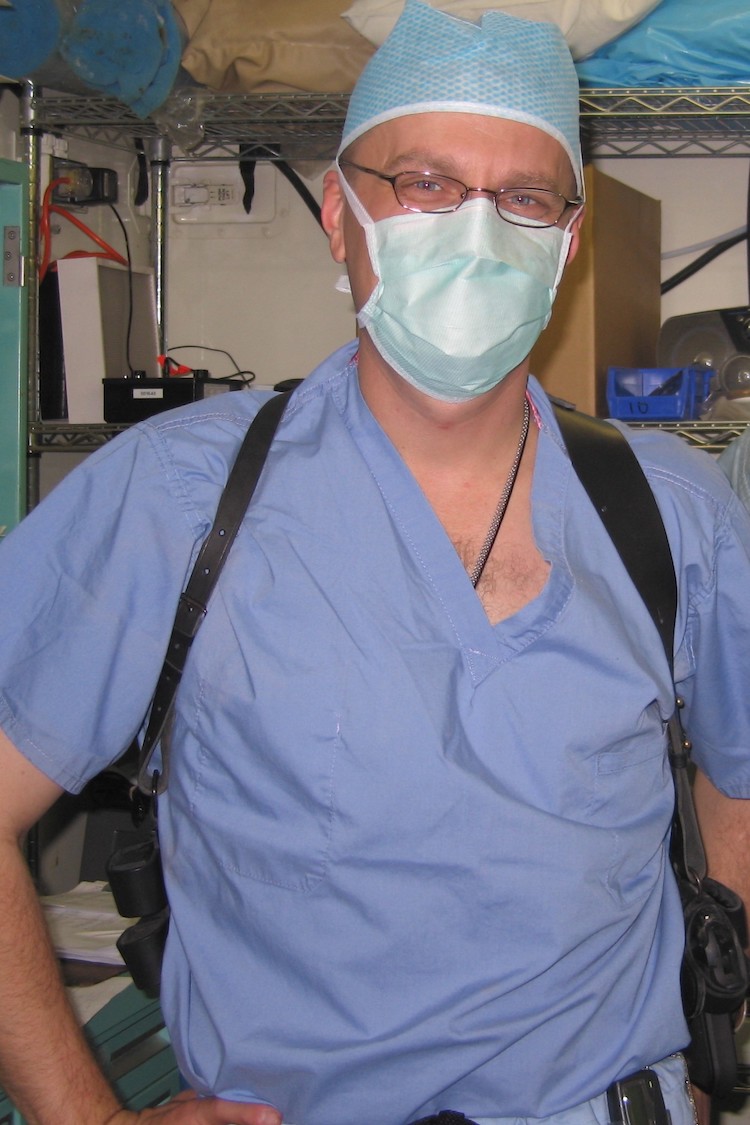
If you come into my office and you tell me you got a headache, and I turn around and I say, “The next thing is, well, let’s just go to the operating room and I’ll take your brain tumor out.” You would say, “Wait a second, I just told you I had a headache, but you haven’t done a CT scan or MRI. How do you know I have a brain tumor?” And I just say, “Well, just trust me. We’ll go take it out.” You would say I was crazy. Right? No, you need to do some diagnostic work here, doctor, before you go cut my head open. And so for me, it was like this thought, I could see this idea in my mind, I have all these thoughts and feelings, and instead of reacting to them, I need to examine them. I need to biopsy them.
And so over time, I developed this idea of self-brain surgery where people can learn how to think about their thinking, biopsy their thoughts, replace them with more helpful ones, and control that emotional reaction instead of reacting to it. And for me, that just turned into the pathway forward for how I put myself together again after losing Mitch.
I realized that hopelessness that affects all of us after we go through hard things is the thing that keeps us from finding our way back to a meaningful life again after these massive things, these big traumatic events. Tragic events happen in our lives, and the bad news is they happen to all of us, but the good news is there really is a way back.
Narrator: To learn more about Dr. Warren, please visit www.wleewarrenmd.com, and be sure to check out his book, Hope Is The First Dose, at your favorite retailer.
Stay tuned to Lily Taylor’s story after a brief message.
Spreading Hope With Samaritan’s Purse
At Samaritan’s Purse, we bring spiritual and physical aid to hurting people around the world. We go into dangerous situations because in disaster and disease, in war, Jesus calls us to love our neighbor, to heal the sick, and feed the hungry, restore the broken. All who work and volunteer with Samaritan’s Purse follow the example of Jesus. We go to serve, not to be served. And we go in Jesus’ name. Join us at www.samaritanspurse.org.
Our next guest is attorney and author of Unconfined, Lily Taylor. From the outside, the Taylors looked like the perfect family. But when their oldest son Stephen got involved with drugs and faced a lengthy prison sentence, their lives were turned upside down. When their prayers for Stephen’s release weren’t immediately answered, they chose not to lose hope, but kept on believing that with God in the center, they could handle whatever came their way.
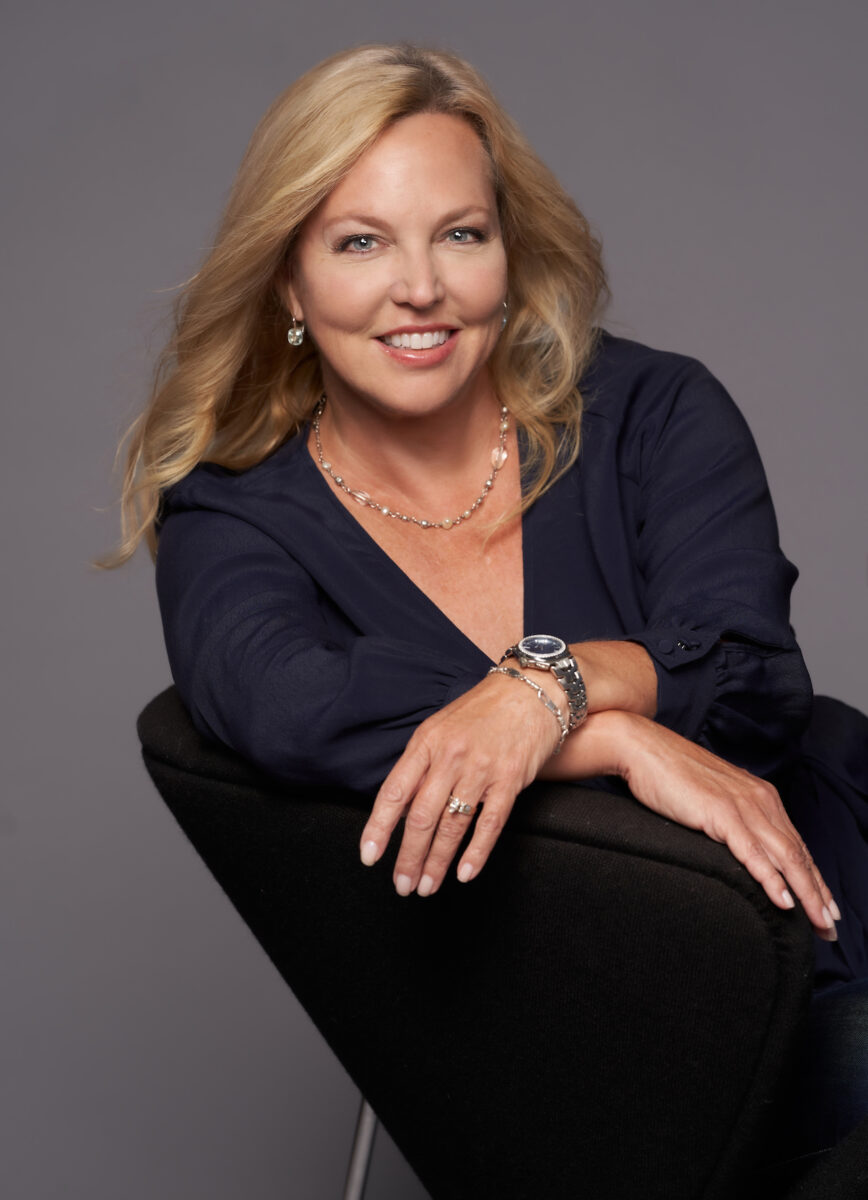
Lily Taylor: Hi, I’m Lily Taylor. I am a busy attorney, an author, a Bible study teacher. I’m married to my wonderful husband, Skip, almost thirty years, and we have three great children.
When Skip and I married a little over twenty-eight years ago, we had each experienced the sadness of an early divorce. We both had similar stories. We had each married early in life—probably too early, right out of high school—and were so sad when that marriage fell apart. So when we met and fell in love, we made a decision that if we were going to blend our families, that we were going to make God the center of everything.
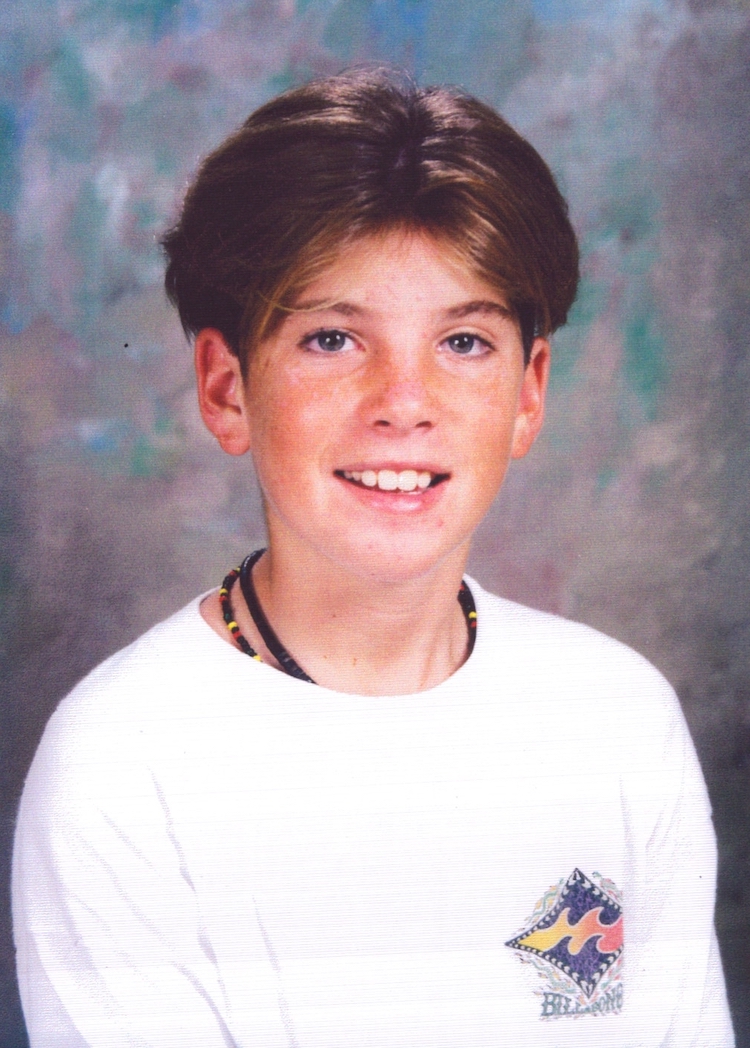
We started teaching a blended families class. We started teaching a young married’s Bible study. We started serving in our children’s area. We were there on Wednesday nights, we were there on Sunday mornings, and we came back on Sunday nights. And so that was basically a lot of what our young married life looked like with our three children at home, including our oldest Stephen, who was about twelve, thirteen, fourteen in that time range.
Our children were quite young when we married and they really got along great. The two younger children really sort of idolized Stephen. He was just a magnet for people. He was charming, he was funny, he was handsome, just really a fun kid to be around. We were just really achieving the American dream in my mind. We had the big house on the hill. We had wonderful jobs that we were proud of. We were really involved in a wonderful, big church. Everything just looked perfect from the outside. And then some things started to crumble around the edges with Stephen as he got into high school.
An Idyllic Life Shattered
His studies fell off, his grades fell off. He had some Christian teachers in his life that cared enough about him to call us and tell us that they were concerned about what they were seeing, that unbeknownst to us, that he was walking out the back of the door of school when we dropped him off at the front door and skipping school and started to get involved with a group of of other students that were doing drugs.
He did cobble together his high school years and managed to get through that, made a few attempts at college but didn’t finish any of his courses. And then all of the sudden there was a period where he seemed to be doing well again. He seemed happier.
Then one day, we got a phone call from Stephen, and he was in jail and he had been arrested on a federal drug charge—conspiracy to distribute narcotics—and we really could not believe it. It took a while for that to sink in, the weight of that, because we were going from he’d had a few speeding tickets to he might be going to prison. And our world just seemed like it fell apart.
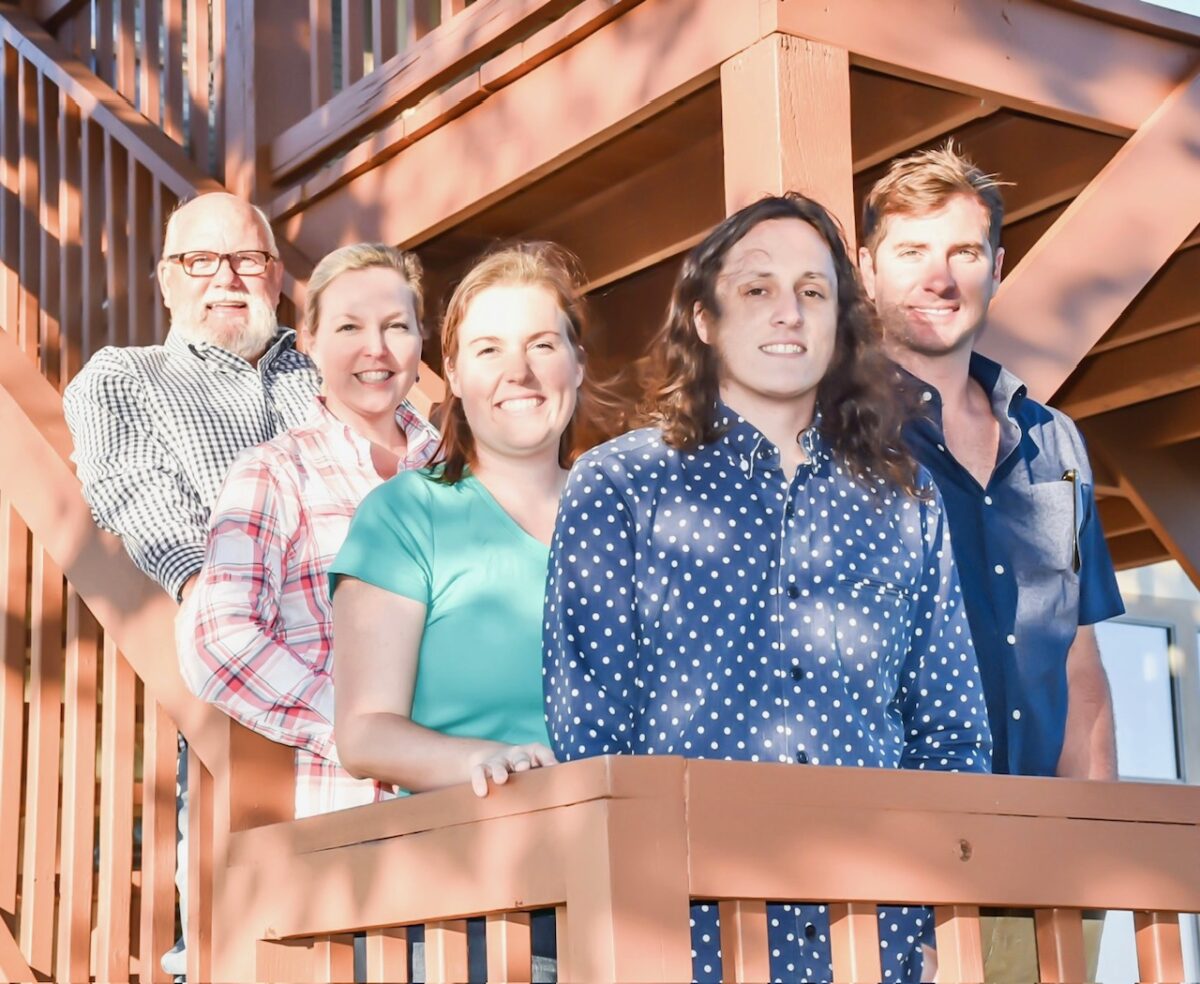
We were coming from a position of feeling really confident with our position in life, that we had accomplished something, that we had a voice that mattered. And then we were put in a truly, truly helpless situation where none of our education, influence, money, Bible study knowledge, none of it mattered to the criminal justice system at all. And so that was something that we had to work through with God.
We heard the news that he was going to be sentenced to a very long prison term, and it was really hard. So we just had to do what we had been doing up to that point when we heard the news, which was to just turn to God and say, “Okay, God, you can still work a miracle here.”
“We heard the news that [our son Stephen] was going to be sentenced to a very long prison term, and it was really hard. So we just had to do what we had been doing up to that point when we heard the news, which was to just turn to God and say, ‘Okay, God, you can still work a miracle here.’” – Lily Taylor
He was sentenced to ten years in prison and five years of probation following prison. Of course, it was a devastating blow because we had been praying and hoping and wishing, and we truly believed up until that very day that somehow he was going to avoid that harsh penalty.
One day, we will see clearly why God allowed certain things to happen in our lives. And up to that moment, we truly believed that he was going to get a very light sentence because he had never been convicted of another crime of any kind.
Being the kind of people that like to have a well-ordered, well-planned life, we had decided how we thought God should answer that prayer. He did not choose to answer it that way. Once that door shut behind him and the reality, the cold, hard reality of just the deprivation and loneliness of prison was very mentally challenging.
God’s Word Never Returns Void
The first couple of years were pretty hard because he was starting to question, “If your God is so powerful, why did He let this happen to me?” It’s hard to answer that question when someone is really in pain. Despite our encouragement, despite our Scripture references and prayers, he was not comforted by that very much in the early days.
It is so unique to love someone who’s so far from you. There were so many barriers and challenges. We decided that we wanted to love him through it and we prayed about how to make that happen, to see him every single month no matter where he was placed.
We started to see a theme that no matter where he went, no matter what happened to him, God was knocking at the door of his heart. God was clearly chasing him down. Our prayers were being answered, just not in the way that we had imagined.
We are so grateful to God for how [Stephen] did come to understand that God was protecting him, that it wasn’t his own might or his own strength. He started getting a little bit of joy back because he started to feel that presence, get comfort and peace from the fact that God was so big, so loving, so amazing that nothing that he was facing was going to be impossible to face. He started to realize that God was his friend, despite the fact that he had allowed this circumstance in his life. It was beautiful for us to watch, because we were so helpless in that moment.
“[Our son Stephen] started getting a little bit of joy back because he started to feel that presence, get comfort and peace from the fact that God was so big, so loving, so amazing that nothing that he was facing was going to be impossible to face.” – Lily Taylor
A friend at work gave us both a copy of Jesus Calling. It made all the difference in the world to understand Scripture because no matter what problem you’re going through in life, there is a word in there for you. We felt very helpless and we really had to just turn that over to God and allow God to speak. And He spoke in the most amazing, beautiful way. God’s Word never returns void. And it really is the place to find all your solace.
Your Mistakes Don’t Define Your Destiny
We’re not going to try to pretend that he wasn’t scarred by the experience or doesn’t still struggle with anxiety, fear, things that are vestiges of that experience. Your destiny is not defined by what you did, a detour is not your destiny. Your destiny is whatever God says it is, and your job is just to be faithful to whatever light He gives you on your path today.
“Your destiny is not defined by what you did, a detour is not your destiny. Your destiny is whatever God says it is, and your job is just to be faithful to whatever light He gives you on your path today.” – Lily Taylor
He ultimately served eight and a half years and just finished his five years of probation successfully. We’re very proud of that.
There’s nothing we can’t handle with God at the center of our lives. Our prayers as parents praying for our prodigals are more powerful than anything that’s trying to come against our child. It’s even more powerful than their resistance. So I know I personally have had to pray for a very, very long time for this prodigal son.
God showed us that there’s absolutely nothing that He can’t use for good. God hears those prayers. It may not look like anything good in the natural, but in God’s economy, He is covering it and He does hear our prayers and He does answer our prayers. And we just need to be faithful. That’s our job. Just as Jesus always encourages us, we just need to be in His Presence, that is where our hope is going to come from.
“God showed us that there’s absolutely nothing that He can’t use for good. God hears those prayers. It may not look like anything good in the natural, but in God’s economy, He is covering it and He does hear our prayers and He does answer our prayers.” – Lily Taylor
Jesus Listens, January 17th:
Exalted Lord Jesus,
You are my Strength and my Song! Yet I confess that I’m feeling wobbly this morning—looking at difficulties looming ahead and measuring them against my limited strength. But these challenges are not tasks for today, or even for tomorrow. I need to leave them in the future and come home to the present, where I can enjoy Your Presence. Since You are my Strength, I know You can empower me to handle each difficulty as it comes. And because You are my Song, You’re able to give me Joy as I work alongside You.
I’ve found that the Light of Your Presence envelops me in Peace when I fill my thoughts with the hope of heaven. You are my Salvation, Lord, so I have good reason to trust and not be afraid.
In Your heavenly Name,
Amen
Narrator: To learn more about Lily Taylor, checkout her website www.prayersforprodigals.com, or pick up her book, Unconfined, at your favorite retailer.
If you’d like to hear more stories about trusting God who is always there, check out our interview with Kirk Cousins.
Next week: Austin and Marideth Telenko

Next time on the Jesus Calling Podcast, we’ll hear from popular TikTok dance duo Austin and Marideth Telenko, known by their moniker Cost N’ Mayor. The pair open up about their unlikely path in the dance world that got derailed by COVID, and the gift of renewed faith they unexpectedly found in the middle of it.
Austin Telenko: There is not a single part of this earth that He does not know and has not seen. So even when you think that you’re in a crevice or a part of the earth that He hasn’t seen, you’re actually so incredibly close.
